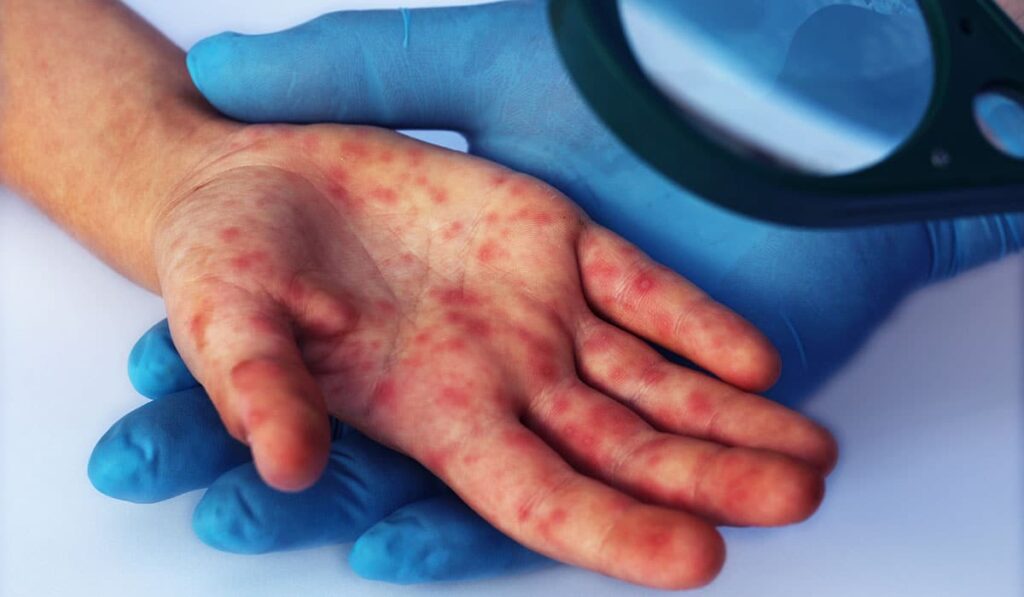OVERVIEW
Measles is a childhood infection caused by a virus. measles can now almost always be prevented with a vaccine. Its a contagious disease that causes fever, a red rash, cough and red eyes. It can have serious complications such as encephalitis, which itself can cause hearing loss. You can prevent measles by getting vaccinated. Even though a safe and cost-effective vaccine is available, in 2021, there were an estimated 128 000 measles deaths globally, mostly among unvaccinated or under vaccinated children under the age of 5 years. In 2021, about 81% of the world’s children received one dose of measles vaccine by their first birthday through routine health services – the lowest since 2008.
Table of Contents

SIGN AND SYMPTOMS
The first sign of measles is usually high fever, beginning about 10 to 14 days after exposure to the virus and lasting four to seven days. A runny nose, cough, red and watery eyes, and small white spots inside the cheeks can develop in the initial stage.
- Fever
- Sneezing
- Runny nose
- Cough
- Body ache
- Watery eyes
- Diarrhoea
- Red rash, appearing around 3–5 days after symptoms start.
- Swelling in lymph nodes
DO IT ON URGENT BASIS
If there are unvaccinated family members in your home, call your doctor to see if there’s still time for them to get the vaccine or another treatment called immunoglobulin (IG) therapy, which involves transferring the protective anti-measles proteins—called antibodies—that are pooled from donated blood to unvaccinated people. This type of treatment is recommended only for unvaccinated, virus-exposed infants 12 months and younger, as well as unvaccinated pregnant people and children with compromised immune systems.
HOW IS MEASLES DIAGNOSED?
There are some laboratory tests:
- Blood sample
- Urine test
- Secretion from your nose and throat
HOW CAN I PROTECT MY CHILD?
There is np cure of measles. you have to be alert about your child get vaccinated. if you notice any one symptoms of measles you should consult a doctor immediate. Measles is one of the world”s contagious disease, If you have not been vaccinated or already had measles, you will probably get it if you are in the same room as someone who has it.
HOW LONG CAN AN INFECTED PERSON CARRY MEASLES?
A person can spread the measles virus from just before the onset of the fever (usually four days prior to rash onset) to four days after the appearance of the rash. Immunocompromised patients may spread the virus for the duration of their illness.
SELF CARE
4. Take care of your eyes. Some people with measles are very sensitive to bright light. Dim the lights at home or wear sunglasses if it is too bright outdoors.
TREATMENT
- There is no specific treatment for measles. Treatment focuses on relief of symptoms as the body fights the virus. This may include fluids and medications to control fever or pain. Because measles is a virus, antibiotics are not effective against the virus.
- Taking acetaminophen or ibuprofen for aches, pains or fever.
- Getting proper rest.
- Drinking much fluids.
- Gargles with salt water.
- Avoiding harsh light for your eyes get relaxed.
- Two doses of vitamin A supplements, after consult with your physician, spaced 24 hours apart.
VACCINE
- MMR (MEASLES, MUMPS AND RUBELLA) VACCINE
- Two doses of the vaccine are recommended to ensure immunity and prevent outbreaks.
Read More


